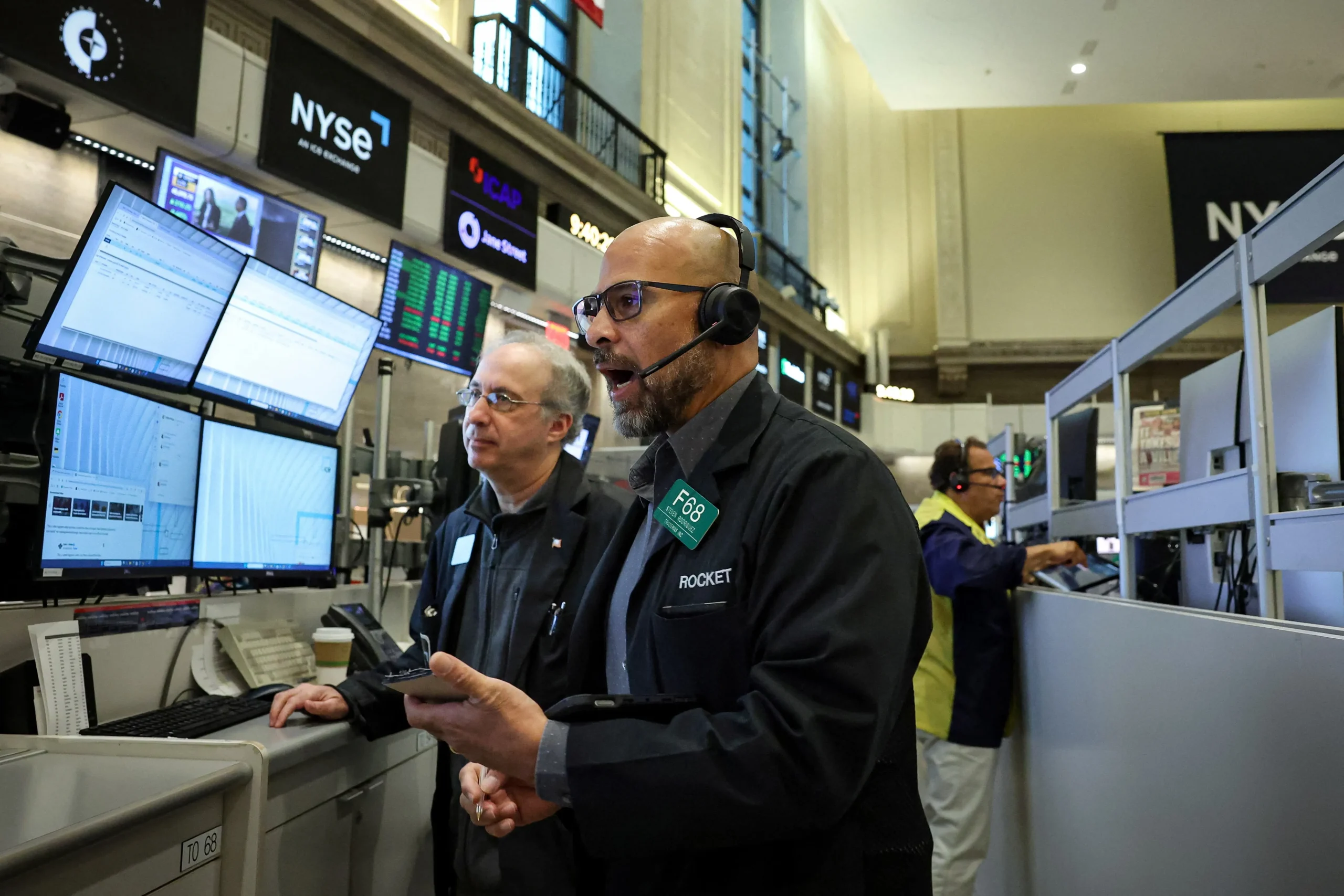Wall Street Ends Quarter Strong as AI Funds Lead Market Rally
The quarter ended on a high note for Wall Street as artificial intelligence funds and technology shares led the market to one of its strongest finishes in recent memory. The rally, driven by enthusiasm for data infrastructure and AI integration across industries, lifted investor sentiment and reinforced New York City’s position as the heartbeat of global finance and innovation.
The S&P 500 closed the quarter with solid gains while the Nasdaq continued to outperform, reflecting investor confidence in technology’s long-term profitability. Analysts attributed much of the surge to expanding AI capital flows, robust earnings from semiconductor and cloud-computing firms, and renewed interest in exchange-traded funds that track artificial intelligence trends.
The market’s performance also had implications beyond trading floors. For New York City’s financial sector, this quarter’s rally boosted tax revenue, hiring momentum, and broader confidence in the urban economy. From office leasing in Midtown to restaurant spending in lower Manhattan, the ripple effects of Wall Street’s strength are being felt across the five boroughs.
The AI Momentum Behind Market Strength
Artificial intelligence continues to dominate the conversation on Wall Street. Funds that focus on AI infrastructure, data analytics, and automation led the market in both volume and performance. Major chip manufacturers and cloud providers posted double-digit growth, signaling that AI adoption is moving from hype to tangible revenue generation.
Analysts have emphasized that this AI cycle differs from earlier tech booms. Instead of relying on speculative valuations, current investment is being supported by measurable gains in productivity and corporate efficiency. Tech companies reported rising demand from sectors such as logistics, healthcare, and financial services, where AI-driven systems are improving cost structures and operational speed.
Institutional investors have responded by allocating more capital to AI-themed funds, some of which saw inflows exceeding 20 billion dollars during the quarter. This growing appetite for AI-linked assets suggests a structural reallocation of capital, not a passing trend.
For New York-based asset managers, the surge presents opportunities to develop new financial products and advisory strategies focused on digital transformation. The city’s investment banks and fintech firms are increasingly incorporating AI tools for portfolio management, client analysis, and predictive modeling.
Broader Market Participation and Urban Impacts
Unlike previous rallies concentrated in a handful of mega-cap names, this quarter’s strength extended across sectors. Mid-cap equities, industrial technology firms, and consumer services stocks also registered gains. The breadth of participation gave the market a more balanced profile, which analysts view as a sign of sustainability.
Liquidity conditions remained favorable, supported by steady investor inflows and strong retail participation. Volatility indices stayed near their annual lows, indicating market stability despite global uncertainty.
This financial strength carries particular importance for New York City’s economy. As financial markets expand, the city’s tax receipts rise, fueling public investments in transportation, housing, and innovation infrastructure. The uptick in trading and deal-making also supports thousands of ancillary jobs across legal, consulting, and technology services.
Downtown Manhattan has already seen a rebound in commercial activity tied to this renewed market momentum. Financial firms are increasing office utilization, and hybrid work patterns are gradually stabilizing. Meanwhile, hospitality and retail sectors are experiencing an uptick in spending as professionals return to the city’s business districts.
The Intersection of Finance, Policy, and Technology
City policymakers are closely watching the intersection between financial innovation and urban development. The rise of AI funds and algorithmic trading is reshaping the composition of Wall Street employment, requiring a new mix of technical and financial skills. In response, universities such as Columbia, NYU, and Cornell Tech are expanding AI-focused finance programs to prepare graduates for this hybrid economy.
At the municipal level, New York’s Economic Development Corporation is supporting partnerships that connect fintech startups with established financial institutions. These collaborations aim to promote responsible innovation while maintaining the city’s competitive edge as a global capital market hub.
AI’s economic influence also extends into public policy. As automation tools become embedded in financial services, regulators are considering frameworks for ethical AI use in investment decision-making and data analysis. Maintaining public trust in AI-driven finance will be crucial for long-term growth.
The city’s tech corridors in Brooklyn and Queens are benefiting from this convergence of finance and innovation. Startups focusing on AI analytics, blockchain verification, and digital compliance are finding increased access to venture capital and corporate partnerships. This trend is helping diversify New York’s economy beyond traditional finance while reinforcing its leadership in fintech.
Real Estate, Investment, and Corporate Confidence
The strength of Wall Street is closely tied to Manhattan’s real estate cycle. With financial firms renewing leases and expanding operations, commercial property sentiment has improved after several challenging quarters. Data from Cushman & Wakefield shows that leasing activity in Midtown and Hudson Yards is picking up, led by demand from tech and financial hybrid tenants.
Developers and real estate investment trusts are also benefiting from stronger equity markets, which improve access to capital for new projects. Institutional investors are showing renewed interest in mixed-use developments that integrate workspace, technology labs, and residential units, reflecting post-pandemic preferences for flexible urban environments.
AI’s impact on real estate is not limited to corporate tenants. Data centers, the physical backbone of AI computing, are emerging as a new asset class in the New York metropolitan area. Investors view these facilities as stable, yield-generating infrastructure tied to the digital economy’s long-term expansion.
In parallel, the consumer side of the economy is showing resilience. Restaurant reservations, entertainment spending, and urban tourism have all increased, supported by higher financial-sector bonuses and rising household wealth effects linked to the stock market.
Caution and Outlook for the Next Quarter
While optimism remains high, some analysts warn that valuations in AI-related equities may be approaching unsustainable levels. The concentration of capital in a handful of high-growth names poses potential risks if earnings momentum slows or regulatory actions tighten.
Monetary policy will also play a crucial role in determining the sustainability of this rally. The Federal Reserve’s guidance on interest rates and inflation management will influence risk appetite and capital flows through the next quarter.
Despite these uncertainties, institutional sentiment remains positive. Corporate earnings forecasts for 2025 indicate continued spending on digital infrastructure, AI deployment, and productivity software. This trend provides a structural foundation for market stability, even amid short-term volatility.
For New York City, the challenge will be to translate market success into equitable economic growth. Sustaining investments in housing affordability, transit modernization, and workforce development will ensure that Wall Street’s gains benefit the broader urban economy.
Conclusion
Wall Street’s strong quarter-end performance reflects more than temporary momentum. It signals a convergence of technology, capital, and urban innovation that positions New York City at the forefront of global finance once again.The AI investment wave has become both a market driver and a catalyst for urban renewal, shaping how the city’s economy evolves in the digital era. As long as transparency, regulation, and innovation continue to align, New York’s financial ecosystem will remain both profitable and resilient a model of how technology and finance can advance together in a rapidly changing world.





Recent Comments